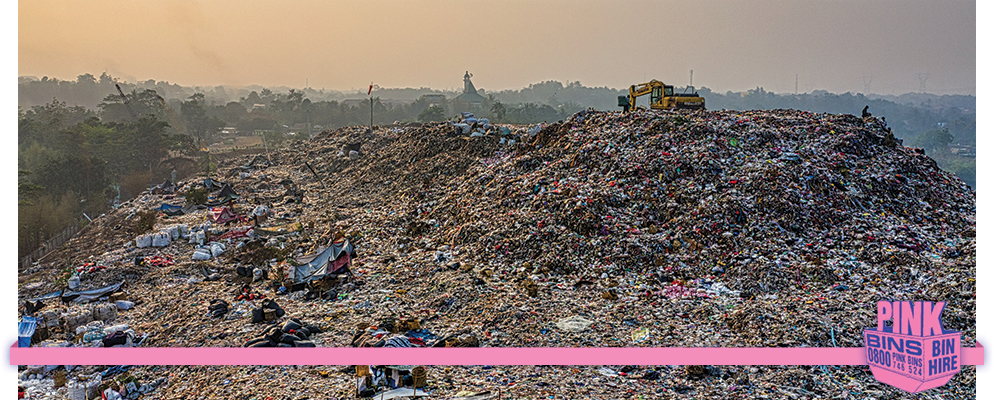These days, most consumers prefer to buy experiences rather than material things. Doing so makes them happier, according to a recent survey. Well, this shift in consumer spending doesn’t seem to have reduced the amount of waste that ends up in New Zealand landfills, which is why the Government is proposing to increase the current landfill levy.
What a waste!
Over the past ten years, Kiwis have sent almost 30 million tonnes of waste to landfills throughout the country. The problem is that the fate around 75% of that waste could have — should have — been different. For example, it could have been reused, recycled or composted.
So what?
You might think that there is nothing wrong with sending your waste to landfill — it’s far better than dumping it illegally. And, of course, you’re right. The ‘rubbish police’ won’t come knocking on your door.
But, here’s the thing: We now live in a world that is becoming increasingly aware that there is only a finite supply of many of Earth’s natural resources and that carbon emissions contribute to global warming.
When we reuse or recycle products, fewer natural resources are required to manufacture new ones. Also, by dumping less organic waste, like food and lawn clippings, into landfills, we reduce the amount of methane gas that escapes into the atmosphere.
Back to the landfill levy
Okay, the Government has a plan to discourage you from dumping waste needlessly into landfills. Actually, they’ve had one for a while. Under the Waste Minimisation Act 2008, they introduced a landfill levy of $10 per tonne of waste. Now, they plan to ‘up the ante’ and increase that levy to $50 or $60 per tonne by mid-2023.
Is the levy good or bad?
In the short term, the cost of higher levies will be passed on to the consumer. You’ll pay more, but that’s business. However, considering that in the United Kingdom, landfill levies are as much as $144 per tonne for some kinds of waste, we get off lightly here in New Zealand.
And, the ball is squarely in your court. There is plenty that you can do to pay less for waste disposal. In this blog, we’ve mentioned these things lots of times:
- Donate unwanted items to charities
- Be entrepreneurial and sell items that still have value
- Repurpose unwanted items (chop up old clothes to use as rags, for example)
- Avoid buying products with excessive packaging
- Compost your food waste (get a worm farm).
The options are endless.
Merry sustainable Xmas
This post is our last for 2019. Soon, we’ll all be settling into the festive season where consumerism runs rampant. Over the holidays, have a well-deserved break, but think about how you can cut down on your waste. You’ll save money in the long run, and please Mother Nature at the same time. It’s a win/win.
Merry Xmas. Thanks for reading our posts, and we look forward to sharing our thoughts with you again in 2020.
If you enjoyed this post, please share it.

